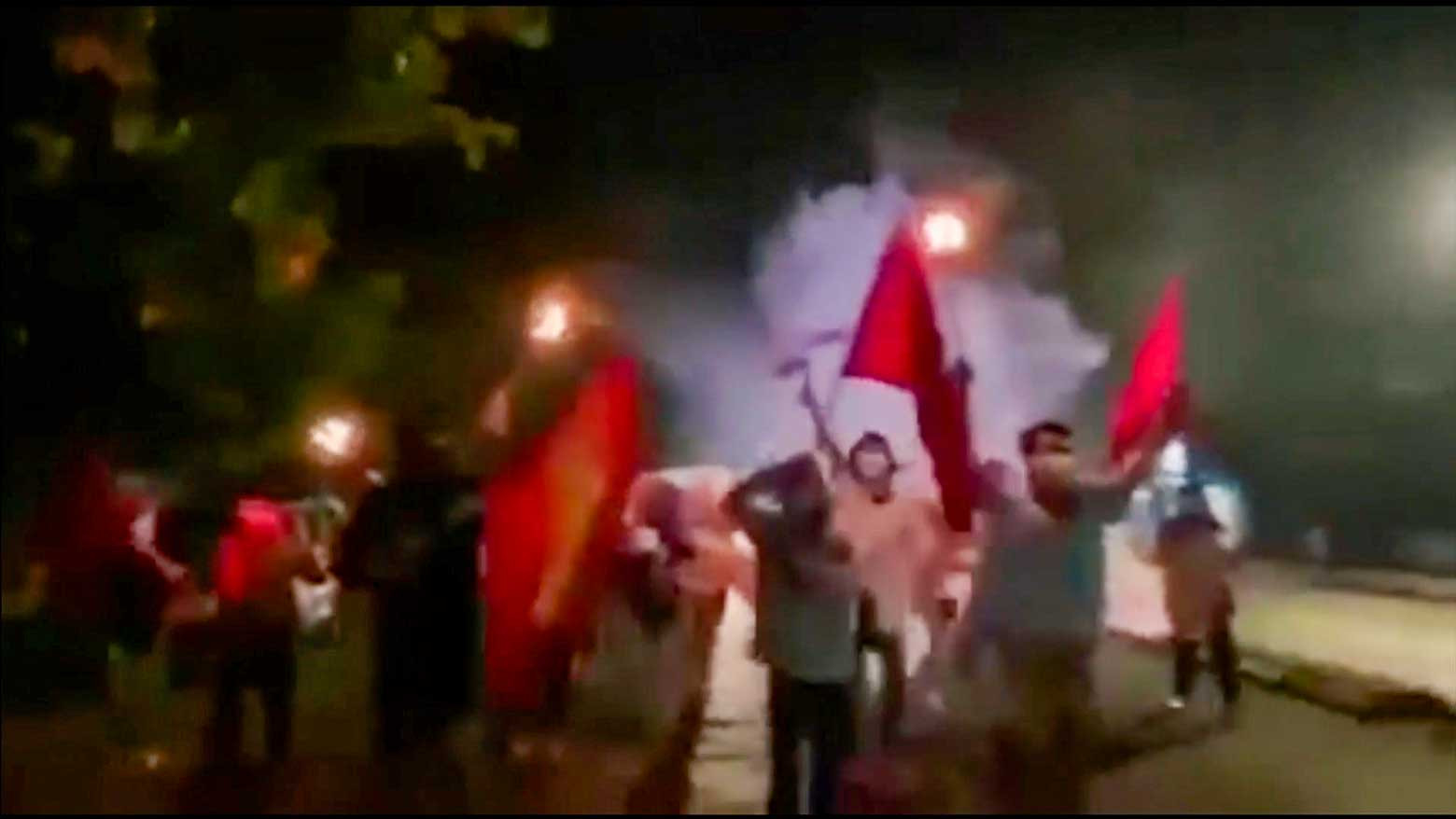Silent strikes
There was little traffic on the streets in central Yangon on Tuesday last week, and almost no pedestrians. Opponents of the military regime that staged a coup one year to the day used social media to call for "a silent strike". People stayed home and shut their doors.
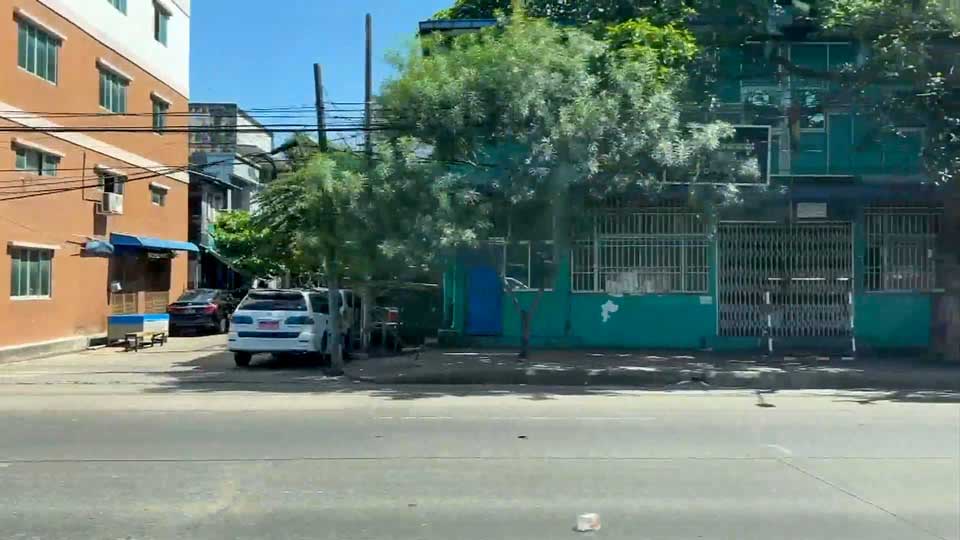
The military had warned that it would take legal action against anyone who took part, but defiant protestors went ahead anyway.
The cost of instability
Myanmar's currency has continued to weaken. Foreign investment is slowing and the economy is in freefall. The World Bank has forecast an 18% contraction for the fiscal year that ended in September 2021.
A human rights group in Myanmar, the Assistance Association for Political Prisoners, estimates more than 1,500 people have been killed in the military crackdown since the coup.
While the military has largely suppressed resistance in urban areas like Yangon, it is a different story elsewhere. Clashes with pro-democracy activists are intensifying in rural areas.
A National Unity Government, or NUG, which was launched after the coup, has been calling on members of the public and minority armed groups to stage a "defensive war" against the junta.
Activist who fled to Japan
Pro-democracy activist Tin Win escaped to Japan last June. He says that the oppression by the military is unrelenting.
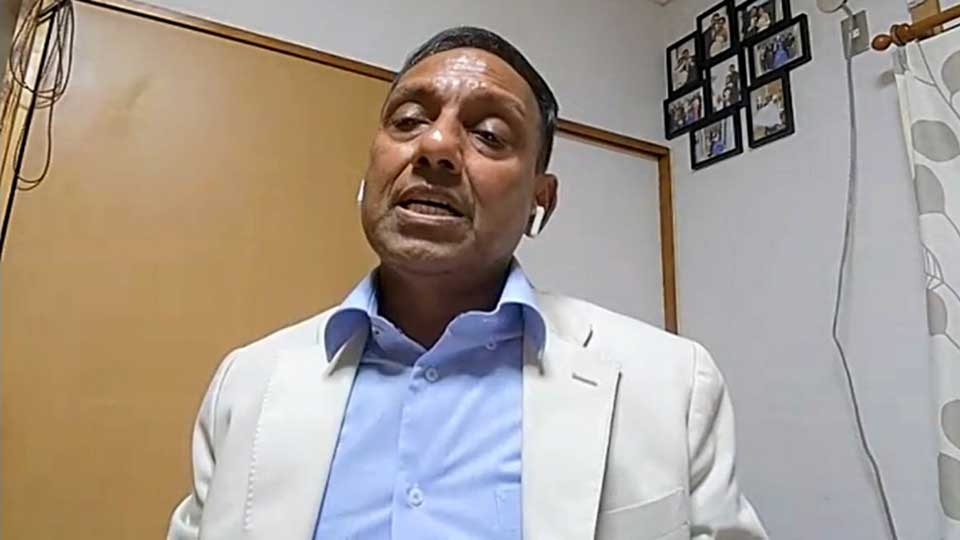
"This coup has been the most brutal, the most destructive and futile," he says. "And now we have a dangerous and deadly stalemate. The military has been using excessive force. People can't go to work, or open up their businesses. Food supplies have been hit. And the currency is crumbling."
Aung San Suu Kyi behind bars
Myanmar's de facto leader Aung San Suu Kyi was detained by the military and placed under house arrest in the capital Naypyitaw. She was removed to an unknown location in late May and it remains unclear where she is being held.
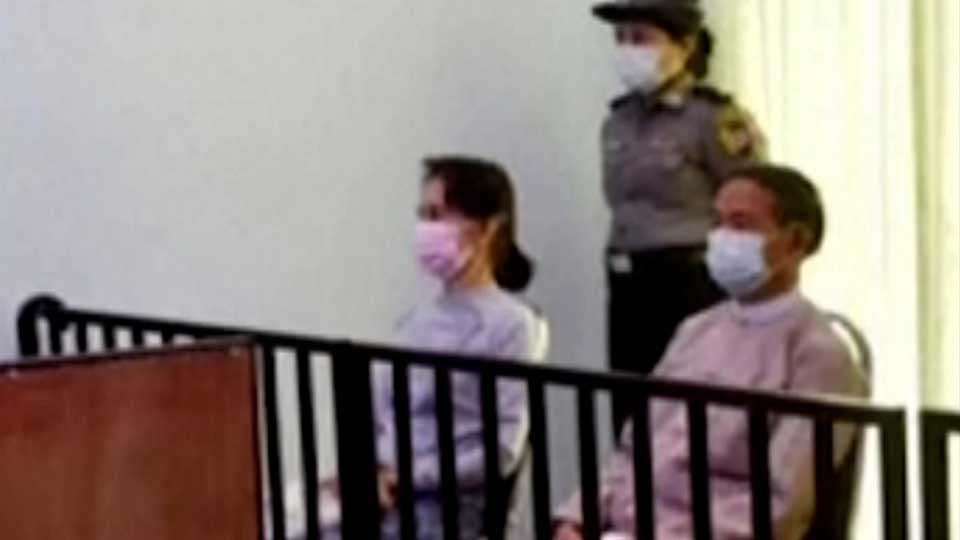
She is on trial for more than a dozen charges, all of which she denies.
So far, Aung San Suu Kyi has been sentenced to a combined six years behind bars, but if found guilty on all charges she faces more than 100 years in prison.
The trial is being held in a court specially set up inside a local government facility in Naypyitaw. The public and journalists are barred. Reports say there are very few witnesses testifying in Aung San Suu Kyi's defense, out of fear of the military.
Children and women among the dead
Amid the chaos that has gripped Myanmar during the last year, several particularly horrific incidents have stood out. One pro-democracy group says 35 civilians were killed, including women and children, in a single incident in Kayah State, eastern Myanmar. It maintains the military burned the victims' bodies.
While the military disputes those claims, state-run media has covered fighting that reportedly erupted after militants in vehicles opened fire on soldiers.
Sanctions by the US and the UK
Last month, the United States, Britain and Canada imposed new sanctions on seven individuals and two entities connected to Myanmar's military.
US Secretary of State Antony Blinken said in a statement that since the coup, people in Myanmar "have stood firm in rejecting military rule and calling for their country's return to the path to inclusive democracy."
He added that the US "will continue to work with our international partners to address human rights abuses and press the regime to cease the violence, and release all those unjustly detained."
The United Nations' response
The United Nations has repeatedly called for a halt to violence, but it is yet to come up with concrete measures. The situation has been discussed at the UN Security Council, with the US and EU countries intent on sanctions. China and Russia are reluctant to support such penalties, claiming they do not want to interfere in Myanmar's internal affairs.
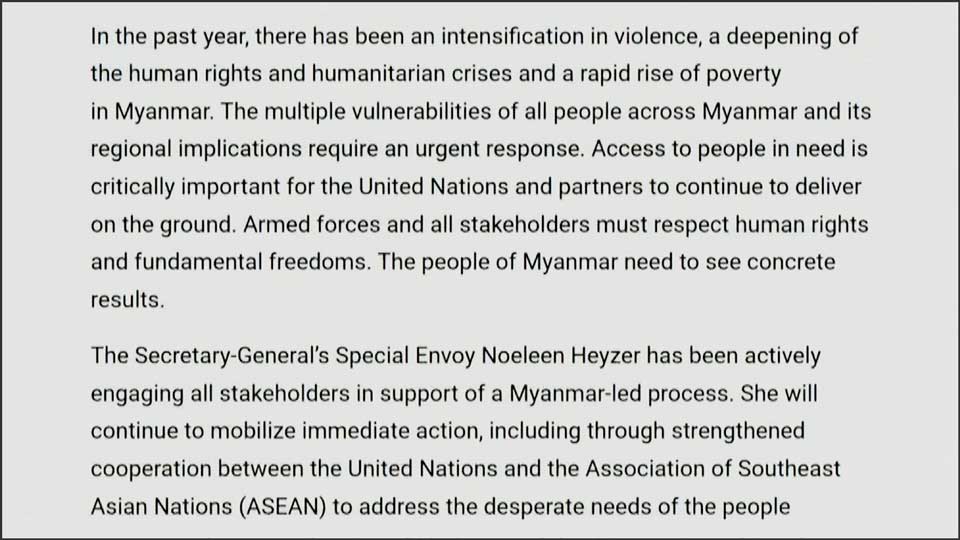
ASEAN divided
The Association of Southeast Asian Nations (ASEAN), which includes Myanmar among its 10 members, is trying to mediate dialogue between the military and pro-democracy forces.
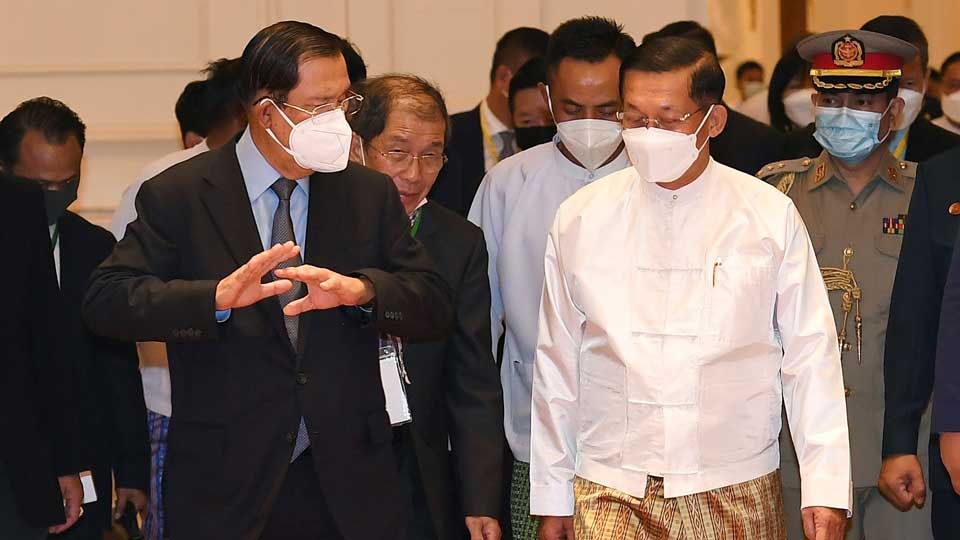
Cambodian Prime Minister Hun Sen wants Myanmar to re-engage at ASEAN summits, and he visited the country last month to hold talks with the country's military ruler Min Aung Hlaing. The trip attracted criticism by some other ASEAN members, including Indonesia and Singapore, who are urging a tough stance against the junta. Member nations remain divided on what to do.
Japan calls for peace and stability
Japan's Foreign Minister Hayashi Yoshimasa spoke out last week against the military takeover: "Japan strongly condemns this situation. Despite repeated calls from the international community for an end to the violence, fighting has continued to claim many lives."
"We call for restraint and a solution that restores peace and stability."
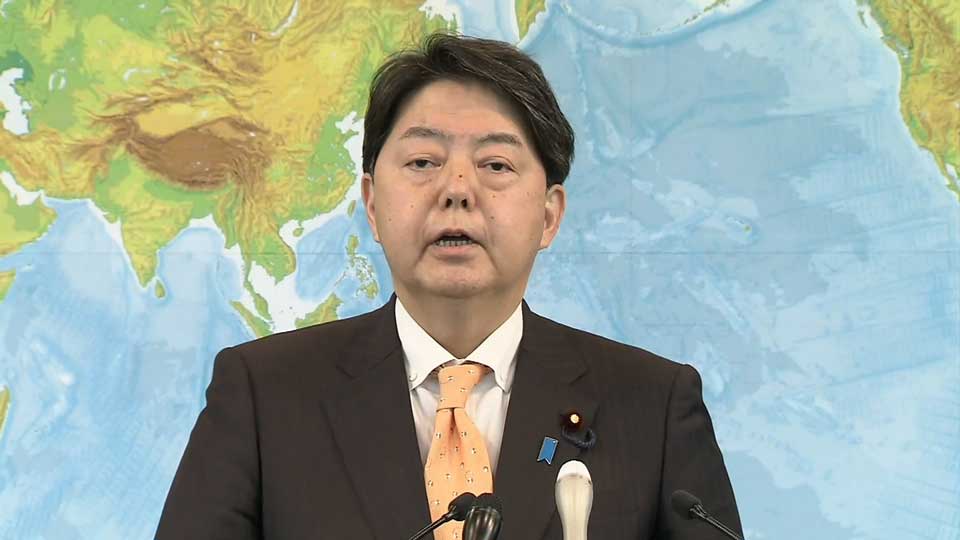
While Tokyo doesn't recognize either the military regime, or the NUG, in formal diplomacy, the Japanese government has a backdoor channel to the junta that it has been trying – albeit unsuccessfully – to use to improve the situation. According to a Japanese Foreign Ministry official, that channel serves as an opportunity to promote democracy and human rights.
From an economic standpoint, Myanmar was seen as the last frontier for major business opportunities in Asia. Japanese firms flocked there when it opened up its economy in 2011. Japan's government also supported Myanmar's growth by extending official development assistance (ODA). That amounted to about $1.8 billion dollars during the 2019 fiscal year, making Japan the largest single donor among developed countries.
Japan will not be providing new aid to Myanmar. But dozens of yen loans and programs that have already been signed are continuing.
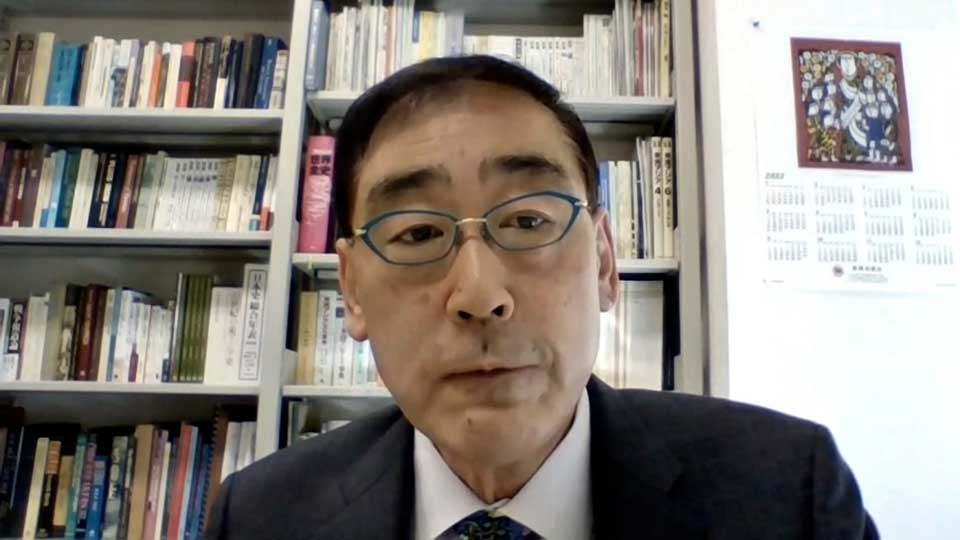
Professor Nemoto Kei, a Myanmar specialist at Sophia University, says the Japanese government should take a tougher approach. "Japan should urge General Min Aung Hlaing to stop the violence, release those who have been arrested, and accelerate the country's democratic transformation to allow everyone to play a part in politics," he says. "Japan should also suspend ongoing ODA projects immediately and use them as a bargaining chip."
Protests in Japan
People from Myanmar who live in Japan held a rally last week to protest the military rule. A crowd of about 300 gathered in front of the Foreign Ministry in Tokyo, calling on the Japanese government to step up efforts to bring democracy to Myanmar.
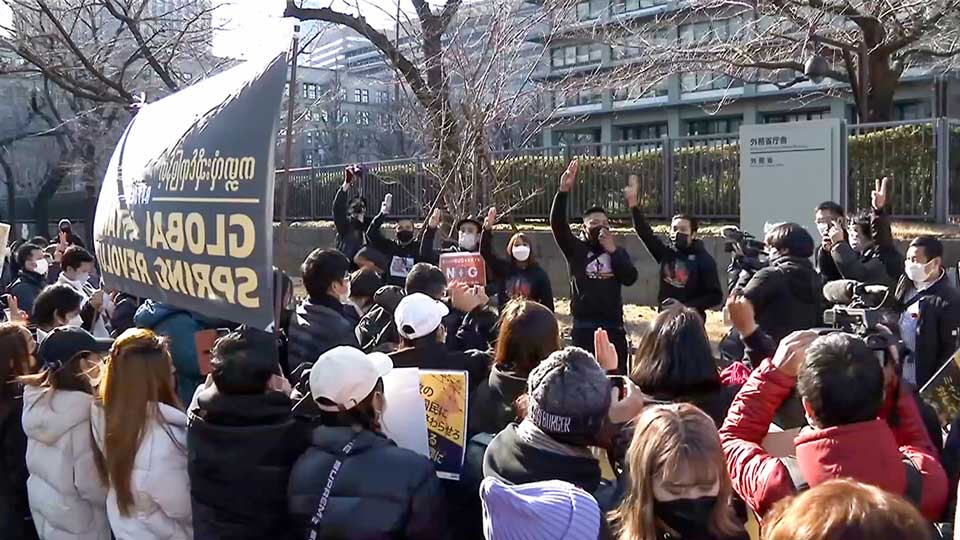
One of the protesters, a 30-year-old woman, said "innocent people, including women and children, are being killed every day. I hope Japanese people will help Myanmar."
Internal displacement causes humanitarian crisis
United Nations figures suggest that more than 300,000 people have been displaced by violence in what amounts to a humanitarian crisis. Professor Nemoto is urging the international community, including Japan, to take action and support those in need.
